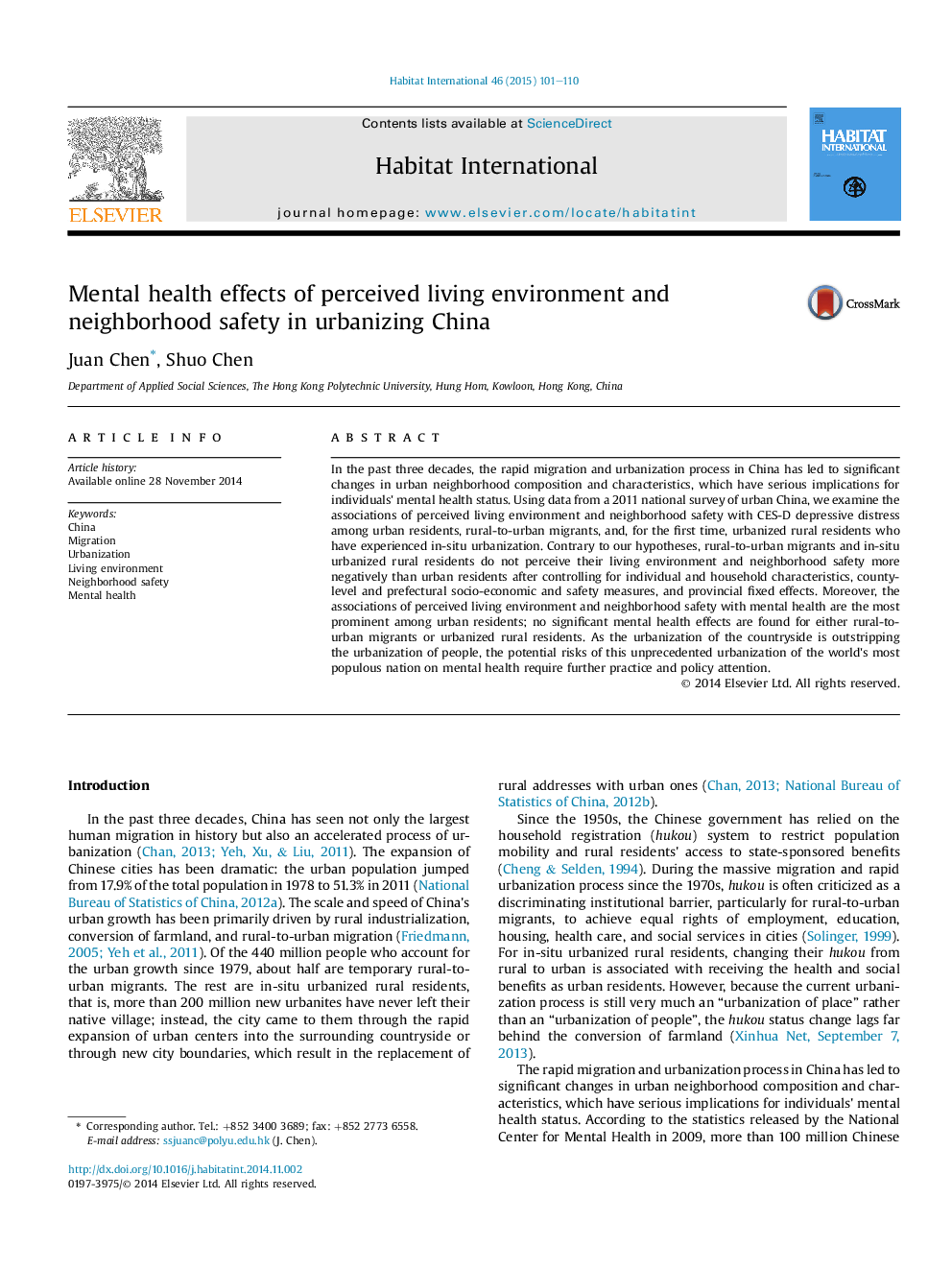| Article ID | Journal | Published Year | Pages | File Type |
|---|---|---|---|---|
| 1047926 | Habitat International | 2015 | 10 Pages |
•Rapid migration and urbanization led to significant changes in urban neighborhoods.•Changes in neighborhoods have serious implications for individuals' mental health.•Neighborhood effects on mental health are the strongest among urban residents.•No significant effects are found for rural-to-urban migrants or urbanized rural residents.•The potential risks of urbanization on mental health require practice and policy attention.
In the past three decades, the rapid migration and urbanization process in China has led to significant changes in urban neighborhood composition and characteristics, which have serious implications for individuals' mental health status. Using data from a 2011 national survey of urban China, we examine the associations of perceived living environment and neighborhood safety with CES-D depressive distress among urban residents, rural-to-urban migrants, and, for the first time, urbanized rural residents who have experienced in-situ urbanization. Contrary to our hypotheses, rural-to-urban migrants and in-situ urbanized rural residents do not perceive their living environment and neighborhood safety more negatively than urban residents after controlling for individual and household characteristics, county-level and prefectural socio-economic and safety measures, and provincial fixed effects. Moreover, the associations of perceived living environment and neighborhood safety with mental health are the most prominent among urban residents; no significant mental health effects are found for either rural-to-urban migrants or urbanized rural residents. As the urbanization of the countryside is outstripping the urbanization of people, the potential risks of this unprecedented urbanization of the world's most populous nation on mental health require further practice and policy attention.
